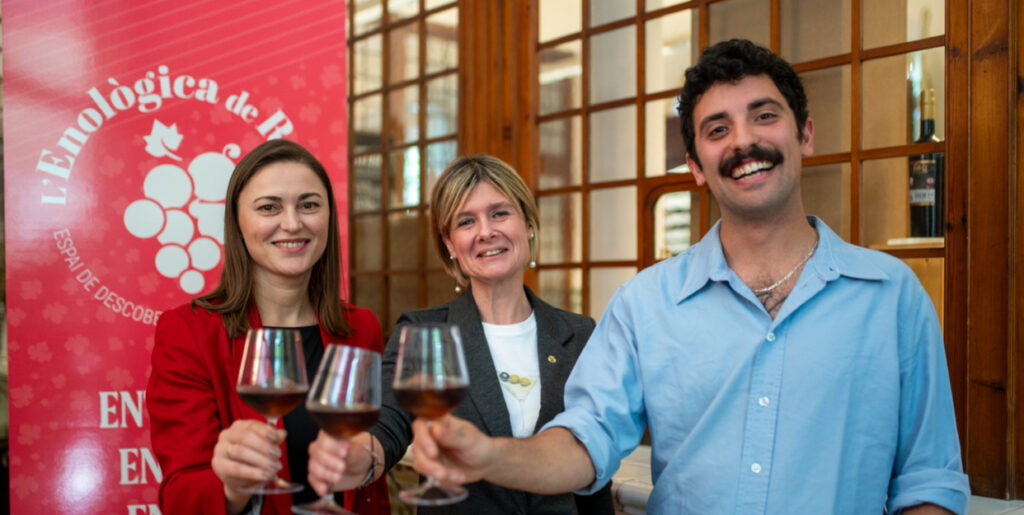Launch of the European Vermouth Route
On the 21st of May the historic Enological Station of Reus hosted the official presentation of the city’s accession—through its City Promotion Agency Reus Promoció—to Iter Vitis, the Cultural Route of the Council of Europe dedicated to the heritage of wine. This milestone represents a new step in the city’s international positioning strategy and marks the official launch of a new section within Iter Vitis: the European Vermouth Route.
The event was attended by Natalia Turcanu, representing Iter Vitis, and Francesco Roletti, vermouth producer from Turin and representative of the Association of Historic Cafés of Turin and Piedmont, which has also recently joined the Iter Vitis network as a key promoter of the history and tradition of vermouth in Italy.
Together, these entities are spearheading the development of the Vermouth Section of Iter Vitis, a thematic focus that aims to recognize and promote vermouth as a culturally significant product deeply rooted in European viticultural heritage. The new section is envisioned as a collaborative platform for launching the European Vermouth Route, connecting territories, producers, and institutions that share a commitment to preserving and celebrating the history and identity of this iconic fortified wine.
During the presentation, Noemí Llauradó, City Councillor for Promotion of Reus, emphasized the importance of embedding the vermouth tradition within the broader framework of Iter Vitis:
“There is no doubt that our city, alongside well-established institutions such as Iter Vitis and thanks to international partnerships like the one initiated with Turin’s Historic Cafés Association, is strengthening its external projection and fulfilling its goal to become a high-quality destination recognized on the international stage.”
The creation of the vermouth section is built on the solid foundations of Iter Vitis, which was recognized by the Council of Europe in 2009 and currently connects over 25 countries across the continent. By incorporating cultural products derived from vineyards—such as vermouth—Iter Vitis continues to expand its scope while preserving the values of tradition, sustainability, and innovation that lie at the heart of the Cultural Routes programme.
The network is now prepared to activate specific initiatives related to the European Vermouth Route, with the aim of growing this thematic branch through existing members and new partners who share this vision.

